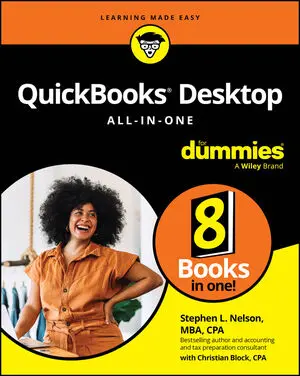You can import any QuickBooks Desktop for Windows company or any QuickBooks for Mac company using QuickBooks U.S., including companies with the multicurrency feature turned on, as long as the company falls within the limitation of 350,000 targets. You also can import QuickBooks Desktop companies using UK and Canadian versions, again including companies that have multicurrency turned on.
In general, the following types of files won’t convert and therefore can’t be imported:
- You cannot import QuickBooks Desktop data into any QBO company that was created more than 60 days ago, except for accountant company files. You can import QuickBooks Desktop companies into a QBOA company within 1,060 days of creating the QBOA account.
When we say “accountant company files,” we’re talking about importing a QuickBooks Desktop company file into the Your Books company available in QBOA.
- You cannot import a QuickBooks Desktop company into QBO subscriptions using international versions of QBO other than UK and Canadian.
- You cannot import non-Intuit accounting software company files. If you need to import company data from a non-Intuit product, you’ll need to work with Intuit’s full-service team.
- You cannot directly import accounting data stored in spreadsheet files. You can import these via a third-party app called Transaction Pro Importer.
- Reconciliation reports: Save your reconciliation reports in QuickBooks Desktop or as PDF files to access them later. In QBO, continue reconciling where you left off.
- Recurring credit card charges: At your Merchant Center, cancel each existing automatic credit card recurring charge and re-create it in QBO as a recurring sales receipt. All other recurring transactions convert and import.
On the good news side, QBO imports sub-accounts it finds in your QuickBooks Desktop Chart of Accounts. Previous versions of QBO didn’t support this capability.
- Reports: Find a similar report in QBO and customize it to your preference. Check out QBO’s App Center for a list of reporting apps that can help your business.
- Audit trail: Your desktop audit trail won’t come over, but all changes going forward will be captured in the Audit Log within QBO.
- Non-posting transactions or accounts won’t convert except for estimates and purchase orders.
| What Doesn’t Import | Recommendation |
| QuickBooks Desktop usernames and passwords | QBO requires each user who has access to a company to log in using a password. Existing QuickBooks Desktop users do not automatically have access to QBO. Instead, the company master administrator will need to re-invite users from QBO to gain access. Be aware that, in QBO, you can limit the user’s ability to see and use different parts of QBO, but you can’t control access at the level of transactions as you can in QuickBooks Desktop. |
| Shortcut list and icon bar settings | QBO has its own distinct keyboard shortcuts. While working in QBO, press Ctrl+Alt+? to see the shortcut menu. |
| Price levels | QBO currently doesn’t support price levels or any automatic way to adjust prices. If you have price levels defined in your QuickBooks Desktop data file, the conversion process won’t convert them to QBO. |
| Reminders | Reminders don’t convert to QBO. Use an external calendar such as Google Calendar or try using recurring transactions set to remind you instead of scheduling themselves. QBOA users do have the ability to create reminders by establishing projects and tasks. |
| Vehicle list | You’ll need to set up vehicles as fixed assets and, if you don’t buy vehicles outright, you’ll need to set up corresponding loans for each vehicle. |
| Reconciliation reports | Save your reconciliation reports in QuickBooks Desktop to access them later. In QBO, just continue reconciling where you left off. And, although reconciliation reports don’t convert, all reconciled transactions in registers convert as reconciled transactions in QBO. |
| Subtotal items | You can add subtotals to transaction documents. |
| Recurring credit card charges | Cancel each existing Automatic Credit Card recurring charge from your Merchant Center, and re-create it in QBO as a recurring sales receipt. Note: All other recurring transactions will import. |
| Memorized reports | Find a similar report in QBO and customize it to your preference. |
| Audit trail | Your desktop audit trail won’t import, but all new changes you make in QBO going forward will be captured in the QBO audit log. |
| Inventory from QuickBooks for Mac | QuickBooks for Mac isn’t capable of exporting inventory to QBO. Instead, you can save your QuickBooks for Mac company as a QuickBooks for Windows file and export it from a Windows machine running QuickBooks Desktop. |






